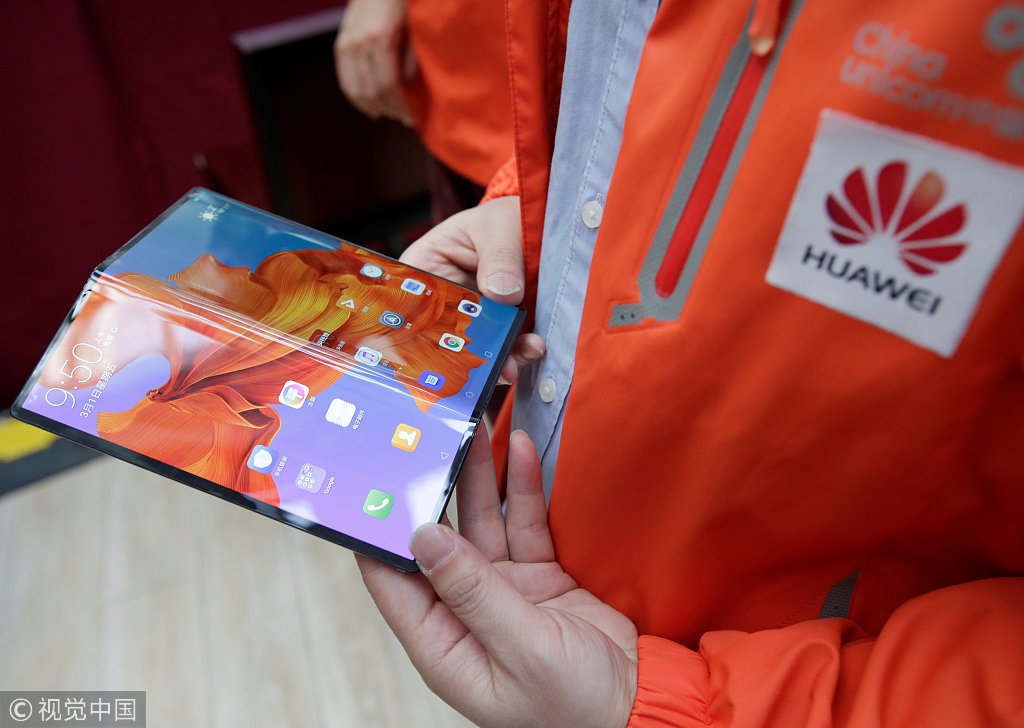
Opinion
16:29, 15-Mar-2019
Opinion: The hymn for intellectual property law in Two Sessions
Zhang Nan

Editor's note: Dr. Zhang Nan is a researcher at the College of Comparative Law, China University of Political Science and Law. The article reflects the author's opinion, and not necessarily the views of CGTN.
On Friday, Chinese Premier Li Keqiang met the press at the Great Hall of the People after the conclusion of the annual session of the National People's Congress, China's national legislature. During the meeting, Li committed to updating China's intellectual property law to protect intellectual property rights. According to Li, infringement will be severely fined once it is spotted.
March is the time for the pink and white magnolia and plum flowers to blossom in Beijing; this is also the month to welcome the yearly Two Sessions. Apart from Li's promise to update the intellectual property law, I see many new measures, facilities and figures to provide for intellectual property protection in China during the Two Sessions. Please follow me to spot and study them one by one.
Firstly, legislative efforts on providing a good environment for intellectual property right holders can be seen. The New Foreign Investment Law will be implemented soon and forced technological transfer is banned. In the latest draft of the Fourth Amendment of Chinese Patent Law, the compensation of intentional patent infringement under a serious circumstance will be calculated as five times of the patent right holder's loss, the unlawful interest of the infringers or the licensing fee of the patent. The new amendment of Chinese Trade Mark Law was initiated in 2018 according to the needs of the society.

A Tesla showroom in Tianjin, north China. /VCG Photo
A Tesla showroom in Tianjin, north China. /VCG Photo
Secondly, new judicial protection measures are implanted to serve creativity and innovation. Last year, 288,000 intellectual property cases were decided in the courts of the first instance, compared to the figure in 2017, it increased 41. 8 percent in 2018; The Intellectual Property Court of the Supreme People's Court was established to hear cases with strong technological features such as patent cases. Thus the judgment standards have been unified. The judicial protection of the Beijing, Shanghai and Guangzhou intellectual property courts and other 19 intellectual property tribunals has also been strengthened.
Thirdly, the quality and efficiency of examination on trademark registration application and a patent application will be increased. Within this year, the examination period for trademark registration will be shortened to less than five months. Regarding the high-valued patents, the examination period will be reduced a further 15 percent than the time of last year. To actualize this plan, actions were taken already.

A staff member shows the new Huawei Mate X smartphone with a 5G network in Beijing, China, March 1, 2019. /VCG Photo
A staff member shows the new Huawei Mate X smartphone with a 5G network in Beijing, China, March 1, 2019. /VCG Photo
More manpower of examination are recruited, invested and will be trained. For instance, Patent Examination Cooperation (Beijing) Center of the Patent Office, CNIPA has announced on their website recently that vacancies of 120 patent examiners were opened to the general public related to 19 major fields such as computer science and biotechnology.
Fourthly, overseas legal aid centers of intellectual property protection are planned to be established. It is expected that Chinese Intellectual property right holders will be protected properly overseas. China is a member of many international treaties related to the intellectual property right. Thus enjoying national treatment is a basic requirement. By setting up these centers, the overseas protection on Chinese intellectual property right holders will be improved.
Finally, more cultural and academic exchanges between China and the world to encourage creativity for the humankind have been proposed during the Two Sessions. For instance, a proposal from the Commercial Press of China is advocating that the translated works between Chinese and foreign languages shall be considered as highly creative in the research assessment system of universities and research institutions on the subjects of humanities and social sciences.
This will lead to more brilliant researchers to work on the translations of academic works. This will also help China and the world to know each other better so that more classic works will be introduced to both Chinese readers and Western readers.
After finishing this article, I will go out to enjoy the sun and the views of blossoming magnolia and plum trees in a local park. For intellectual property right holders, our flowers of creativity and innovation will be cherished and appreciated!
(If you want to contribute and have specific expertise, contact us at opinions@cgtn.com.)

SITEMAP
Copyright © 2018 CGTN. Beijing ICP prepared NO.16065310-3
Copyright © 2018 CGTN. Beijing ICP prepared NO.16065310-3